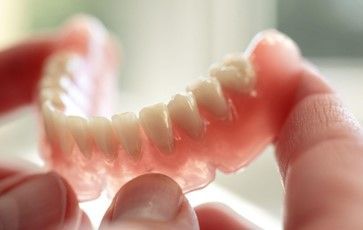Dental Myth Busted: Dental Implants DO Need Regular Maintenance
Admin • March 20, 2019
When people lose a tooth, they have many replacement options to consider. For example, high-quality implants can take the place of a missing tooth and provide many benefits for a person's oral health. A person getting this implant may mistakenly think that this artificial tooth is invincible and won't be damaged by common dental problems. Sadly, this perception is very mistaken.
Implants Support Dental Health
Dental implants take the place of missing teeth and have the same general shape and structure of a normal tooth. Implants use a multitude of various materials to produce a reliable and robust surface. For example, many implants utilize metals like zirconium and titanium to create a durable exterior that will last for years after the implant insertion.
Implants improve a person's smile and resist many types of dental issues, including excessive decay, because of their durable materials. Just as importantly, implants help keep the jaw in proper shape and avoid a sagging mouth. However, people can't just get implants and never take care of them, or they risk the chance of severe oral health issues.
Implants Are Not Invincible
Individuals with dental implants may make the mistake of thinking their artificial teeth are nearly invincible or that they can resist all types of wear and tear. While implants are indeed stronger than natural teeth, plaque, acid, sugar, and other issues can wear down their surface and their enamel and cause serious dental health issues.
Teeth, and even artificial teeth are designed to withstand a large amount of damage. But plaque, acid, and other damaging elements can slowly, but surely, wear down the surface of even the toughest material. Therefore, dental damage to implants isn't an uncommon problem, particularly if implant owners don't take the proper steps to manage this issue in their mouth.
Issues That Affect Dental Implants
The two most common issues that affect dental implants are inflammatory diseases. These include periimplant mucositis and peri-implantitis. The first problem causes inflammation of the gum tissue around the implant and occurs with a lack of proper maintenance procedures. The second issue causes bone loss around the implant that may cause serious health problems.
Typically, these issues occur in about 10 percent of all implants and require high-quality dental treatment to manage. Thankfully, implant owners can take several maintenance steps to avoid these issues. And, even better, most of these maintenance processes are care methods that most individuals are likely already following for their ordinary oral health improvement.
Maintenance Techniques for Implants
Individuals with oral implants must regularly brush the implant to remove plaque and other damaging elements. A soft electric brush provides an effective care method, as it will break apart plaque without putting excessive pressure on the surface. Just as importantly, flossing the implant is critical as a way of preventing plaque and tartar buildup in hard-to-reach areas of the tooth.
Techniques specific to the implant also provide maximum benefits. For example, antimicrobial mouth rinses destroy plaque and tartar in the mouth and keep implants safe from damage. Small interdental brushes also help to brush around hard-to-reach areas of the tooth and are available from dentist offices.
Just as importantly, regular dental checkups help spot and treat issues before they become serious. In the first several months after implant installation, an individual should go through multiple checkups. These can also detect problems with implant acceptance, as the jaw may reject its insertion.
Dental Care Protects Implants
By now, the importance of implant maintenance is apparent. So if you have a dental implant that you haven't correctly managed, please don't hesitate to contact us at Advanced Dental Care right away. Our professionals will assess the possible impact on your tooth and will work hard to ensure that your implant is healthy and free from damage.

Missing teeth can affect your daily life, from difficulty chewing and speaking to feeling self-conscious about your smile. If you're struggling with discomfort while eating, trouble speaking clearly, or noticeable gaps in your smile, it may be time to consider dentures or partials. These dental solutions can restore both the function and appearance of your smile, helping you regain comfort and confidence in your daily activities.

Learn effective tips for maintaining your oral health at home, including brushing, flossing, using mouthwash, and making healthy dietary choices. Discover the importance of hydration, regular self-exams, and avoiding tobacco use to keep your teeth and gums in top condition. This guide provides simple steps to help you maintain a healthy smile and prevent oral health problems.
Read this blog to explore the differences between dental crowns and bridges, their purposes, and how to choose the best option for your dental health.

Discover how oral health and overall wellness are connected. Explore how maintaining good dental hygiene can prevent systemic diseases, support heart and diabetes health, enhance digestion, and boost mental well-being. Learn practical tips for integrating dental care into your overall health strategy.
Do you use dentures? Read our blog to learn more about how to maintain your dentures and keep them in top shape.
Read this blog to learn some common dental issues in older adults and what you can do to maintain your oral health as you age so your smile never changes.
Read this blog post to learn more about practicing preventative dental care from a young age with your children. Contact us to find out more.
In this article, you will find six compelling reasons to get a dental checkup before leaving on vacation. Keep reading to learn more.
Many seniors make common oral health mistakes that can have serious consequences for their health. Discover some of the most prevalent oral health mistakes.







